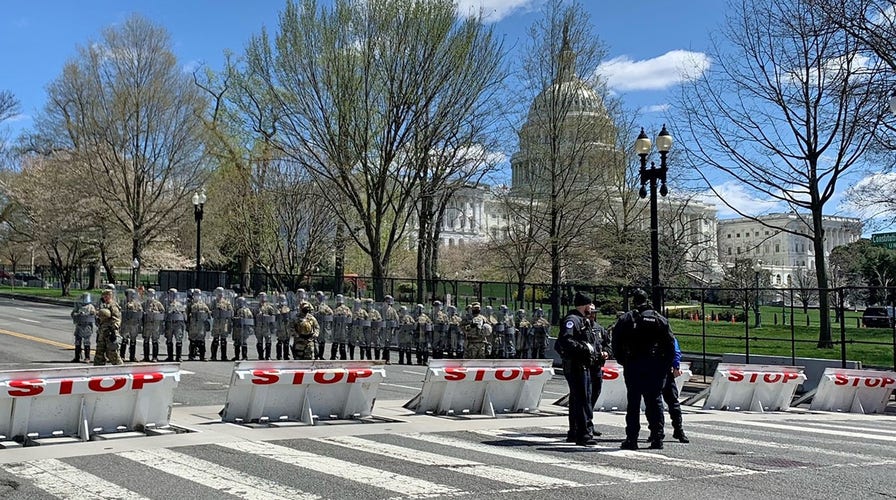Fox News Flash top headlines for June 22
Fox News Flash top headlines are here. Check out what's clicking on Foxnews.com.
Facing a dire lack in funding, the National Guard could be forced to cut its training program beginning next month, Army Secretary Christine Wormuth warned before a Senate Appropriations Panel subcommittee Tuesday morning.
The Guard’s four-month deployment to Washington, D.C., in the aftermath of the Jan. 6 Capitol riot cost an estimated $521 million, which was pulled out of the Guard’s operational and training funds. Wormuth said the money must be reimbursed immediately.
"Without those resources, the Guard . . . will find themselves with training issues," Wormuth said. She added that the Guard has already postponed some training and could begin to cancel training events beginning in July.
FEAR SHAKES MEXICO BORDER CITY AS VIOLENCE LEAVES 18 DEAD
At the height of the Capitol security needs, around 26,000 guardsmen stood watch at the Capitol, after criticisms during the Jan. 6 breach that police faced an hours-long delay in receiving backup from the Guard. All remaining guardsmen returned home in May.
A bill to bolster Capitol security that included funding to reimburse the Guard made its way through the House, but the Senate has yet to work through its own version.
"If we are not able to cover that right now, the Army Guard is basically in a situation where they are concerned about their ability to pay for training for the rest of this year," Wormuth said of the funding scarcity.
NATIONAL GUARD TO LEAVE DC, PENTAGON SAYS
Defense Secretary Lloyd Austin sounded the alarm on Guard funding last week, telling the Senate that if it did not approve funding before its August recess, "It will impact their [the Guard's] ability in the near term to be able to train and adequately prepare the guard for its future, for its current responsibilities."
Chairman of the Joint Chiefs of Staff Gen. Mark Milley said that without reimbursement, the Guard will face a "significant negative impact on their ability to maintain their readiness."
CLICK HERE TO GET THE FOX NEWS APP
In addition to the Capitol deployment, the Guard has over the past year helped with southern border security, COVID-19 testing and vaccine distribution, responding to civil unrest in the wake of George Floyd's death, natural disasters and bolstering cyber defenses.














































